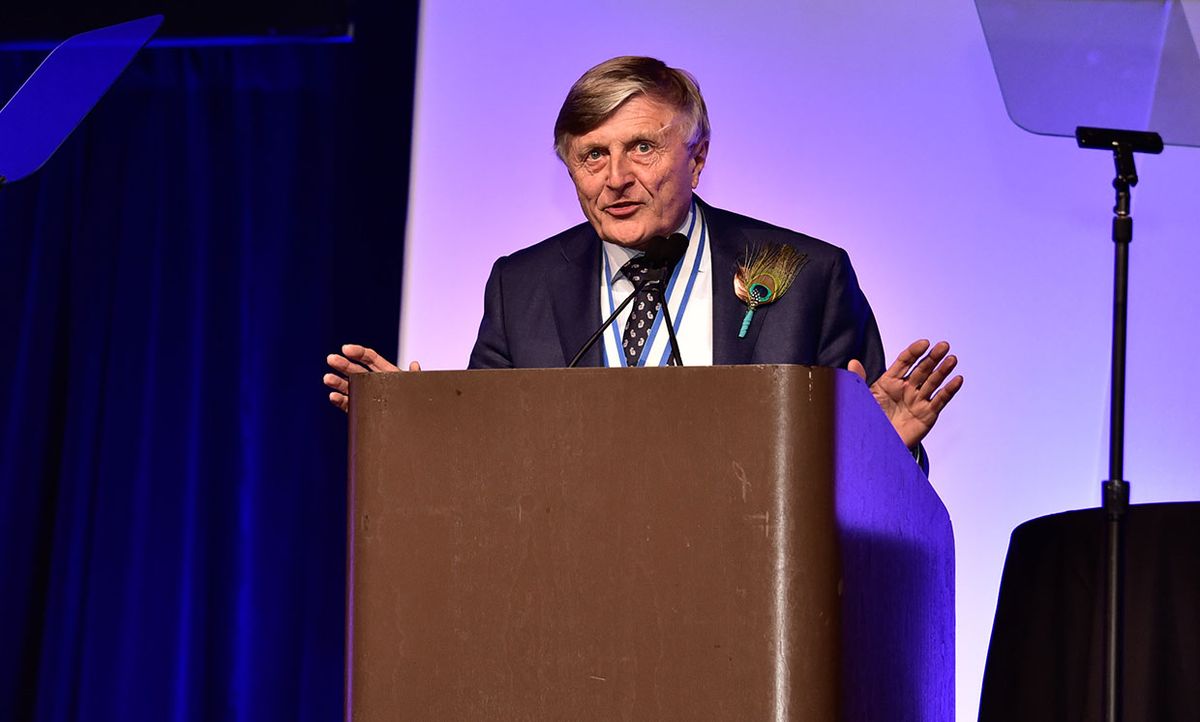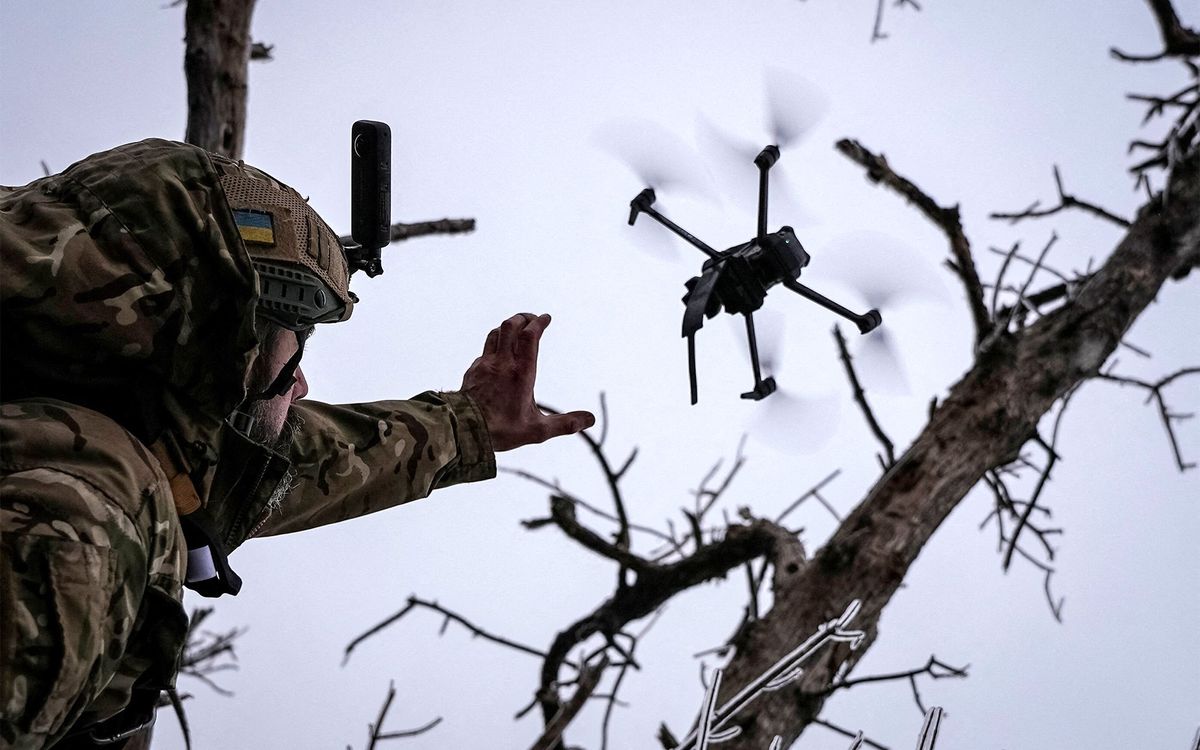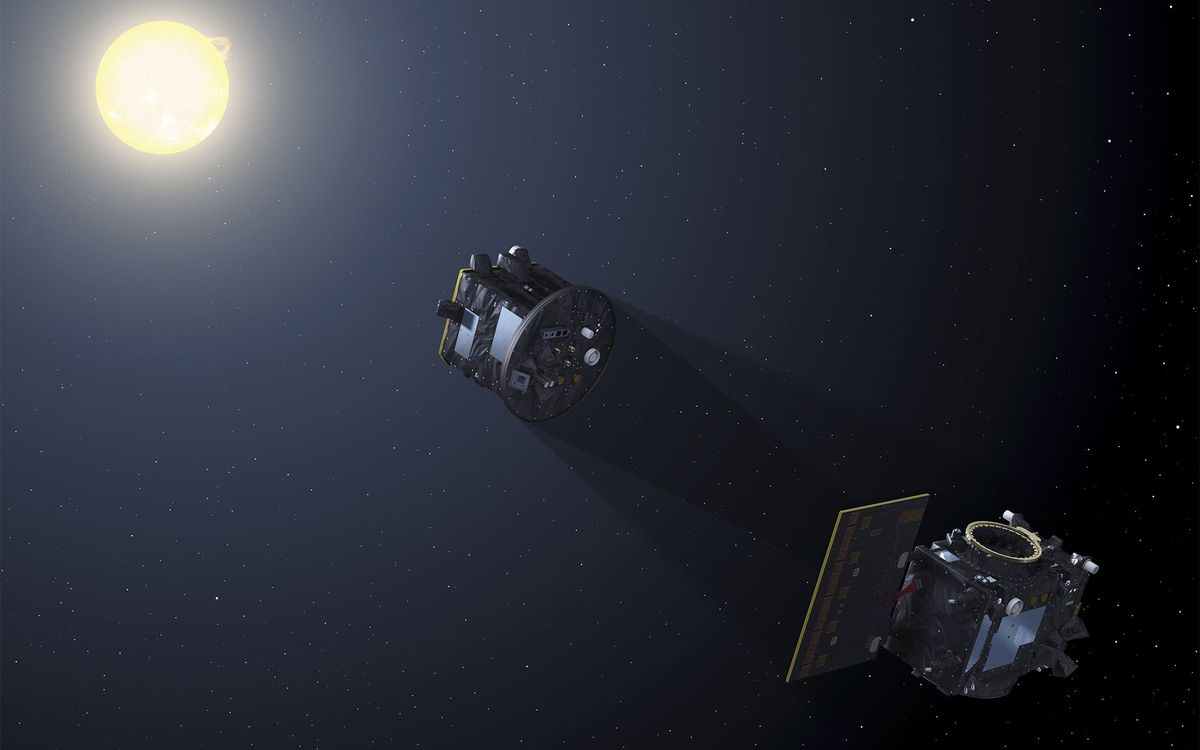THE INSTITUTEI attended three back-to-back events held on 16 and 17 May in San Diego that spotlighted some people who laid the groundwork for many of today’s devices and showcased several emerging technologies. Here are highlights of those sessions.
At its San Diego headquarters, Qualcomm hosted the “IEEE Evening of Innovation” panel discussion on 16 May with four of this year’s award recipients. One of the questions they were asked was why they chose engineering as a career. IEEE Founders Medal recipient Sir Robin Keith Saxby said he got into the field to continue pursuing his hobby of repairing televisions, which he had been doing since the age of 14. He felt he was destined for the electronics industry. And he made his mark as the first CEO and chairman of ARM Holdings, one of the most successful semiconductor and software design companies. It was his decision to license ARM (Advanced RISC Machines) intellectual property instead of making the chips themselves.
He was knighted in 2002. Since he retired, Saxby is an advisor and investor in several startups. His advice to those considering launching a startup is to not be afraid to try new things and make mistakes along the way.

The IEEE Vision, Innovation, and Challenges Summit got underway on 17 May with panel discussions on smart cities, social robotics, and cybersecurity. Kicking off the event was keynote speaker and computer scientist Telle Whitney, who is active in promoting women technologists. Whitney cofounded the National Center for Women and Information Technology and is chief executive officer emeritus of the Anita Borg Institute. At the Honors Ceremony that evening, Whitney was made an IEEE Honorary Member for her support and promotion of women in technology.
Whitney said she was drawn to technology at 13 after she watched the moon landing in 1969. Like many students today, she didn’t know any engineers to serve as role models. That’s why she said she became active in increasing the number of women engineers and those from underrepresented groups. She outlined four actions that organizations can take to increase diversity: Hold leadership accountable, evaluate diversity and inclusion programs, diagnose hiring and promotion practices, and mobilize people to work together.
“One of great changes in recent times is that many companies now report their diversity numbers,” she said. “What you can measure you will change.”
Member Irene Hu, one of the speakers on the IoT–Smart Networks and Social Innovations panel, is working on make cities healthier by examining urine in wastewater from sewer systems, known as wastewater epidemiology. Hu is a hardware electronics engineer at startup, Biobot Analytics. Urine contains a lot of information about citizens’ health that can be analyzed to help cities take preventative measures against bacteria, drug abuse, and viruses, she said. Biobot is working with Cary, N.C., to measure the concentration of opioids in its sewers, and map the data to identify where use of these drugs is highest. In the United States, overdosing on opioids is the leading cause of death of people under the age of 50, according to Hu. Armed with the information, municipalities can better target educational and prevention programs, and equip first responders with knowledge about where overdoses are most likely to occur.
“We can gather information about the health of a city before a situation becomes a catastrophe,” Hu said.
During the Ethics in AI: Impact of (Anti?) Social Robotics session, panelists Ayanna Howard, Kevin McGowan, and Kate Vredenburgh were asked about which field robots have the most impact. All three agreed that healthcare is where the need is greatest, especially caring for the elderly. When questioned about whether robots were going to bring people closer or further apart, McGowan said, “Overall, I think it’s a net-net, they will bring us closer together.” He’s an associate partner for McKinsey and Co. “Over the course of human history, machines have improved our way of our life, but have come with some downsides. The world is moving forward not backwards.”
That evening’s Honor Ceremony recognized those who paved the way for today’s wireless networks, microprocessors, lasers, and other technologies. Many recipients said the event felt like an “Academy Awards for engineers.”
There was a standing ovation for Katherine G. Johnson, who received the IEEE President’s Award for her work on the Apollo 11 spaceflight. Unable to travel to the ceremony, her daughters accepted the award on her behalf. Johnson’s mathematical calculations of orbital mechanics at NASA were critical to the success of the first and subsequent U.S. human spaceflights. She was one of the women featured in the Oscar-nominated 2016 film Hidden Figures.

The new IEEE Theodore W. Hissey Outstanding Young Professional Award, established to recognize up-and-coming technology leaders and highlight their work, was presented for the first time. Hissey presented the award to Member Mario Milicevic. In his acceptance speech, Milicevic credited past and current award recipients whose lifelong work he said was the foundation of his research into error correction and quantum cryptography.
“The future of technology is very interdisciplinary,” Milicevic said. “I challenge young engineers to push the boundaries in fields such as healthcare, robotics, sustainable energy, and quantum computing. The list of meaningful problems is endless, but ideas, focus, determination, and hard work truly can change the world.”
The next IEEE Vision, Innovation, and Challenges Summit and Honors Ceremony will be held on 15 May 2020 at the JW Marriott Parq Vancouver hotel, in Vancouver.
Kathy Pretz is editor in chief for The Institute, which covers all aspects of IEEE, its members, and the technology they're involved in. She has a bachelor's degree in applied communication from Rider University, in Lawrenceville, N.J., and holds a master's degree in corporate and public communication from Monmouth University, in West Long Branch, N.J.



